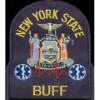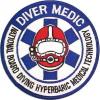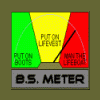Leaderboard
Popular Content
Showing content with the highest reputation on 06/04/2011 in all areas
-
Had a particularly crappy shift last night (nothing super bad or major just a long drawn out one) and twords the end I was given a new found respect for the Techs and Nurses. Twords the end of the shift we have a head injury w/ neck pain call so of course its off to the nearest Trauma Center. Wasn't bad enough for Level 1 and a medivac so we ground transported to the nearest Level 2 (still is trying for 1 cert / don't know the business end of that so I digress). Just as we pull up we get hit with we are on full divert effective immediatly.... well when we called you it would have been nice to know.... Well I state my case for at least taking my patient. Intake nurse agrees but notifies us no beds were available and we probably would be in a hallway. Fine at least we are at diffinitive care and should be on our way. Partner writes up the PCR while I stay with my patient awaiting the Triage Nurse to take over care. Nothing.. great shift change. OK no big deal in a little bit things will get better. Out of the blue it seemed two CPRs come crashing through the doors.. intake nurse is shocked and tried to say divert but tell that to two seperate crews cot surfing and one riding the lightning. She hits the OS button but very few hands come (come to find out later 4 nurses called in sick). The main ER Doc see me standing by my patient and just says here now (now I know how my dog feels) I tell my partner to stay with the patient and get to the Doc's side. Basically I was just another set of hands to help out with compressions and bagging. No big deal at least it isn't in the back of a moving rig. After a short time some RNs show up and I am out of the way back with my patient. Again I go to the intake nurse and remind her we are still there. I get the drop the PCR in the box and go. Ummmm NO!!! I have a patient with a head injury, in full C-spine, on O2, in and out of it so NO I am not just leaving the patient in the hallway until I get a higher level of care. Guess at that point my patient advocacy balls got twisted and the CMA abandonment light went off. She says fine someone will be over soon. Told my partner to grab a cup of coffee we will be a while. Figured with two codes back to back Im at the bottom of the toteum pole. Well fast foward 2 1/2hrs, an O2 tank later, several more sets of vitals, PMSes, and reassesments on my piece of tape and I finally get a Triage Nurse. This Nurse couldn't A)believe I would stay that long and have my rig OOS B)Not through a fit and C)continue with O2 therapy and keep treating my patient. She was actually impressed and got on things fast. Before I knew it we had a Doc on the way, CT/X-ray lined up and were allowed on our merry way. On the way out even got a thank you from a family member that just arrived. Ok so where in there did I find new respect? Being in the ED almost 3hrs, watching a short staffed nursing staff do their thing, and basically teching my patient until higher care arrived made me realize what still goes on after we leave. Watching nurses take care of multiple patients at once without missing a beat, going from full divert to getting a trauma and two codes within minutes of each other and realizing it was necessary to take them and still do their thing. I have heard some ER Techs say they are just babysitters or laundry services and I thought that is how it really was. But staying with my patient for so long and still doing what I can for my patient, having to go from that to working alongside ED staff working a full code, back to my patient again made me realize just what is necessary to be a Tech or Triage Nurse. Yea I know there are probably long stretches of pure bordum (doesn't the same go for us in the "streets"?) but in that few hours (which I have never had to do before) in the ED where it was hectic I witnessed and was part of something I would probably never have been in and to see how everyone shined opened my eyes a little more. So the next time I am dropping my patient off and I get a snippy Nurse or Tech, maybe it isn't them. Maybe it was a bad day 5 minutes before I got there. I will try to be more accomidating next time. Sorry if this sounded a little rambling or all over the place. I have had 1hr rest in between my EMS shift and here now at my regular job.2 points
-
So to start I'm a new EMT (got my ticket in april). So yesterday was my second day teching and not being a third rider. I did 40+ hours 3rd riding and the only emergency we had was a man in his 40's who was hyperglycemic no biggie. My first day teching on an 8 hr shift was one dialysis T/P (i work for a private company and this is the majority of the calls we get). yesterday my partner (senior EMT) was giving me a scenario abt a toddler slip and fall and adding a couple curves in the mix in and asking what my interventions would b. 2 minutes later we get a call for a SLIP AND FALL altho it was a 90 yo F. the sirens blaring the lights and the 5 hour energy drink i drank a couple seconds before had me wired as hell. But i was confident still plus one of our chair car drivers were on scene (who is currently in EMS school) so we had assistance. we arrived on scene and i suddenly got tunnel vision. this lady was supine on the floor in excrutiating pain. and upon assessing her LOC she told me her neck was in pain and instead of goin thru with the assessment the way i shudve i jumped right for the c-collar to get it on her and my partner looked at me like i was nuts lol. he ended up taking over the show. Idk i felt like i crapped out on my initial assessment....totally disregraded the ABC's and focused in on the c-spine almost didnt even palpate her neck jus was ready to throw that sucker right on it. I felt like as the tech I didnt perform efficiently yes i know we have partners but from what i was taught the tech is who pretty much goes the the initial and secondary assessment. and the paperwork at the ER was even more of a catastrophe. wrote 3 drafts before my partener wrote it out cuz we were already an hour over our shift and needed to clear the call. As a team WE GOT THE JOB DONE. but got damn as one i felt so inadequate. ANY ADVICE IS HELPFUL. JUST DONT BE IGNORANT PLEASE2 points
-
Ah! I saw something in your post... you mentioned transporting folks to doctor's appointments. It's much easier to get certified as an agency providing non-skilled assistance to the home-bound/elderly/non-car possessing. If I am understanding your intent correctly, it is to provide service to your community... let me tell you, as someone who works in an assisted living facility, there are SO MANY people who could use even just some companionship or a ride to the grocery store, who cannot afford to pay privately for said services. Something to consider, eh? There's really no place for another first response agency, especially somewhere like Oregon where paramedicine is pretty well established, on most scenes. Usually it's too much with the fire department AND the EMS crew, especially if they're separate agencies. Add in another "first response" group, and boy do you have too many cooks. I know you want to be helpful, but unless you're the only thing around, you really are only going to get in the way and make people angry. I'm not saying this to be mean, honest to God. I get your intentions. I'm saying this based on my experience with different first responder groups in both urban and rural settings. The reason we're talking about billing and payment is because you *will* need resources to cover your overhead expenses. Your basic first aid supplies may be tax deductible, but insurance for your practice isn't (and you don't want to practice without some form of liability coverage, trust me on this.) If you're an official agency, Good Samaritan type laws no longer apply to you as you have a perceived duty to act. Liability in medical practice of any kind is HUGE. I'm an EMT-B, have been for 6 years. I'm also now a nursing student. I started as a First Responder. When I was a First Responder, I thought I was cool as all hell, and super useful (I was also 16). Then I became an EMT, and realized just how little I knew other than physical skills. My assessments sucked, and I couldn't give any useful info to higher levels of care. As an EMT, I thought I was cool as hell. I voluntarily, without pay, dutifully helped the RA's at my college take care of drunken, vomiting undergrads. Then I started getting into the pathophysiology of injury and disease processes, and realized just how little I knew as an EMT. I could do more than I could as a First Responder, and had some basic semblance of what was really going on with patients, but it seriously wasn't enough. I realized that some of my decisions, based on how little I knew, could actually endanger my patients. It's not an ego thing from many of the higher level providers here on this forum- if anything, it's embarrassment and humility, because most of us have been where you sit right now, and realize that we also once spoke from positions of ignorance (note- ignorance does not equal stupidity, please don't take this statement that way.) We're trying to let you in on it, but some of us are harsher than others with the approach. Don't let that rebuff you or think it's personal- it's not. We're not trying to shit on your parade, honest. We're trying, as the people you will potentially be interfacing with in the field, to give you our honest assessment of the plan. Your honest to goodness best bet is what Tcripp just said- go talk to the local EMS agencies, as they already know all the rules governing practice, and pitch your idea to them. See how it is received. You will need their support, since you are not planning to compete with them, but rather be "another resource" in the field. If they don't like you or support you, they will block you at the levels you need to be certified at. Just honestly the way the world works. Good luck to you... hope this post was helpful in some way. Wendy CO EMT-B2 points
-
Hey, a significant portion of my raising was spent in the DC area, so I haven't hit banjo black belt level 8 yet .1 point
-
Nope. Good old coffee and tea (mostly tea) and water do it for me, and I regularly work 10 hour overnight shifts with a sleep cycle that I switch back to "normal" on my off days. Energy drinks scare me. Had a gal riding a mountain bike race over several passes here in CO who came up from Utah, decided to chug a 5 hour energy that she'd never had before, and boy she was a mess. Altitude + dehydration + 5 hour energy = whoops! All that taurine and stuff is rough on your kidneys. My brother loves Red Bull, he digs the taste- I tolerate it but don't much care for them, so I don't seek them out. Wendy CO EMT-B1 point
-
Nobody's being crucified. Rather, people are intimating that professional communication lends one more credibility in this particular setting (what setting *doesn't* that apply to, however...) and providing good reassurance that more experience will help one become smoother and more proficient at handling emergency calls. Nobody jumped on this n00b and said dude, get out now, you done screwed up your entire career from this call and ya ain't got what it takes... that would be crucifying the n00b. Wendy CO EMT-B1 point
-
With all the great responses, I don’t know if there’s anything of substance I can add; but let’s give it a shot anyway…. First step: Put down the energy/power drinks and back away slowly! Second step: Put down the strap and stop beating yourself over this… Ok, now that we’re calming down, let’s look at what you had and what you did: 90 year old female slip and fall… First things you should be considering is: 1. Possible hip fracture/dislocation 2. Did she hit anything on the way down? 3. How long has she been down? 4. Any secondary injuries from the fall (sprained/broken wrist, dislocated shoulder, ulnar/radial fractures)? What was your MOI? Did she slip on one of those crocheted/hand braided rugs that grannies are notorious for, or did she take a nose-dive off the ladder where she was painting the ceiling? Since she was screaming in pain, she obviously had a patent airway; so there’s no real need to sweat that at the moment. That’s one checked off the list. Did you notice any major bleeding when you made patient contact? Check another off the list…. Were peripheral pulses present? Capillary refill < 2 seconds? Check that off the list as well.. Now that we’ve covered the ABC’s, it’s time to look at the ‘D’ … what was her disability? Was she complaining of any other pain besides her neck? Did she strike anything (like the table, counter or coffee table) on her express ride to the floor? Since she WAS complaining of neck pain, the C-collar would be a wise choice, since you don’t have x-ray vision and can’t tell if anything is subluxed or fractured. Since you’re immobilizing the cervical spine, then a LSB is in order. Your initial patient survey usually runs from ‘nose to navel’, and your secondary is ‘nose to toes’. Complete each stage before moving on to the next, that way it becomes a systematic and complete process. This WILL take time! As far as report writing, this too will take time to master, and develop your own style of reporting. The main thing to remember is that you should be able to pick up a PCR and by the time you’re done reading it, be ‘caught up’ with the situation at hand. Critiquing your call is one thing, but using it as ammunition to beat yourself up is a horse of a different color all together! Look at it objectively and ask “What could I have done better?”, not “Oh look how I completely screwed EVERYTHING up!”. You’ve had your first EMERGENCY! call, now it’s time to stop with the rookie nerves and start thinking about the possible injuries based on your dispatch information on the way to the call…this will help you ditch the ‘tunnel vision’ and start looking for zebras when you hear hoof beats… Like the others, I can’t really see where you ‘screwed up’ anything. I see someone who let their nerves take control, not controlling your nerves. We were all ‘green’ at one time or another (and for some of us, we’re ‘green’ on several levels in our careers). We DO understand the reactions to that first ‘hot call’, and we’re here to lend whatever assistance we can to help you through it. This ain’t the end of the world, and you WILL get through it and get better at what you’re doing as you get more experience/exposure… Ultimately, the best time to panic is when it's all over with; until then, just keep your head in the game and you'll do fine!1 point
-
As usual, Dust brings up a few good points. Just because someone is not doing something the same way you do does not mean it is wrong. Always be cautious with the advice from senior people in EMS. Unfortunetly this is a field where, "This is the way we've always done it," is pretty common. Medicine is constantly evolving and EMS is not keen on keeping up due to this attitude. Sometimes it's best to smile and say OK, but look it up yourself. Take everything you hear from those in the field with a grain of salt. Want an example? Look up the history of MAST.1 point
-
This is not meant to put you down in any way, but it is something that comes up a lot on this forum. People here are very aggressive with making EMS more professional and getting it the respect it deserves. One way to do that is to be able to properly express yourself in spoken and written communications. This may just be an internet forum to some but it is a representation of the profession to the public so people are very adamant about proper writting (spelling, grammar, punctutation, caps, etc). As a newbie, you will take your ribbing for it but trust me, the people here are phenomenal and have as much knowledge as you could want. Take your newbie hazing with a smile, fix the presentation of your posts and you will be welcome. The fact that you apologized and accepted responsibility for the miscommunication in your post speaks volumes and will gain you respect. Welcome to the city. EDIT: Wow, I just made this place sound like a serious cult. Lamb sacrifice at noon.1 point
-
Yes thanks for the spell check. I was in a rush. But getting advice was the intentions of this post. I understand what I did wrong now after the fact. I guess I should be more specific. What is a good way to prep myself for a call as such when one has that adrenaline rushing and tunnel vision kicks in. I'm an EMT but i'm a regular person too so straight up advice is what I want. I don't need senior EMT's to get on the post and be pompous pricks just some pertinent criticism and advice to calm that rush and stay level headed. I know exactly what I did wrong your explaining everything in my textbooks. i know it. I just failed to apply it as I shouldve...1 point
-
Here we go, the forum regulars crucifying a new person who comes to post here. Don't let a lot of these people get you down. It is a cult. To the OP: Stay clam, remember you aren't the one dying. You are an EMT, and realistically there isn't much you are going to do to hurt this person. Board/Collar 'em up and get 'em on the way to the ER. Your assessment can be done in route. You'll be fine kid, just take a deep breather and stay level headed. It will fall into place soon enough.-1 points




